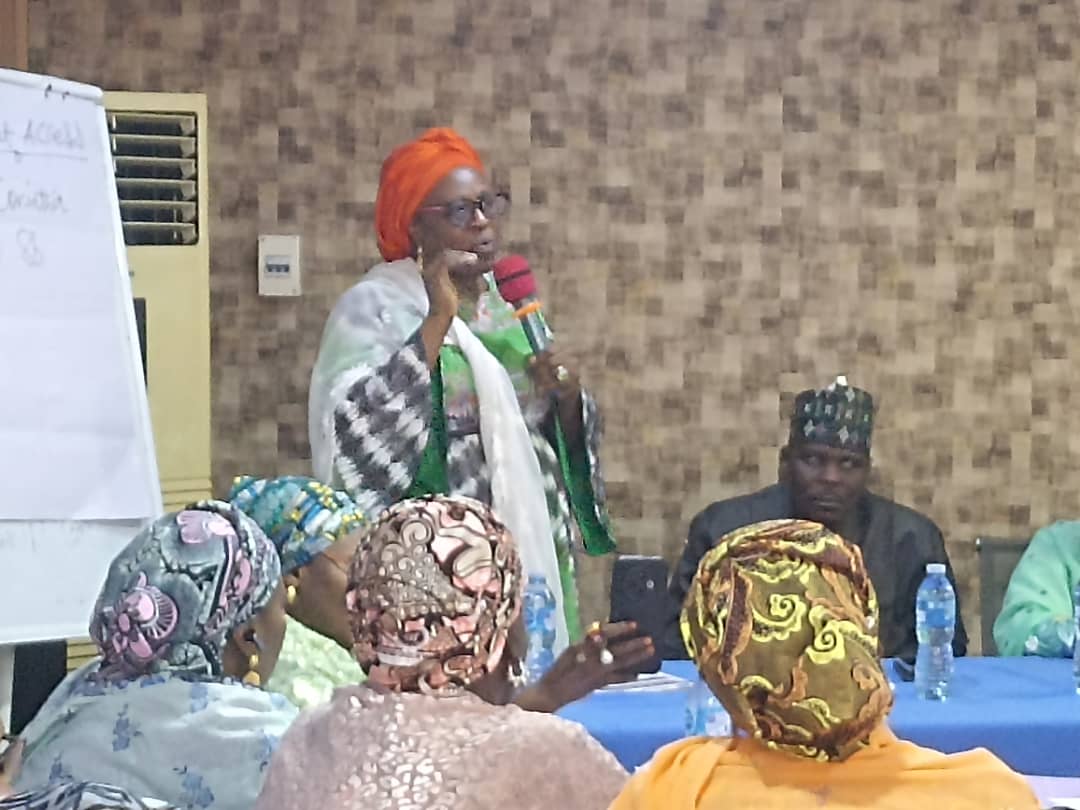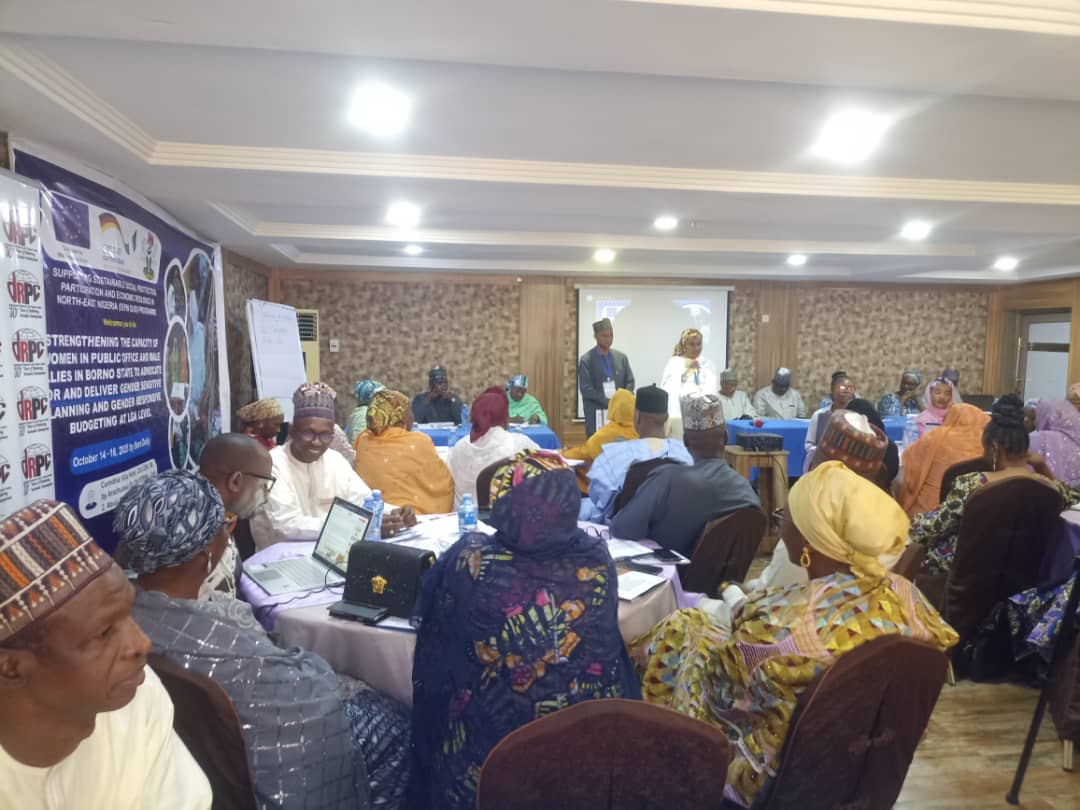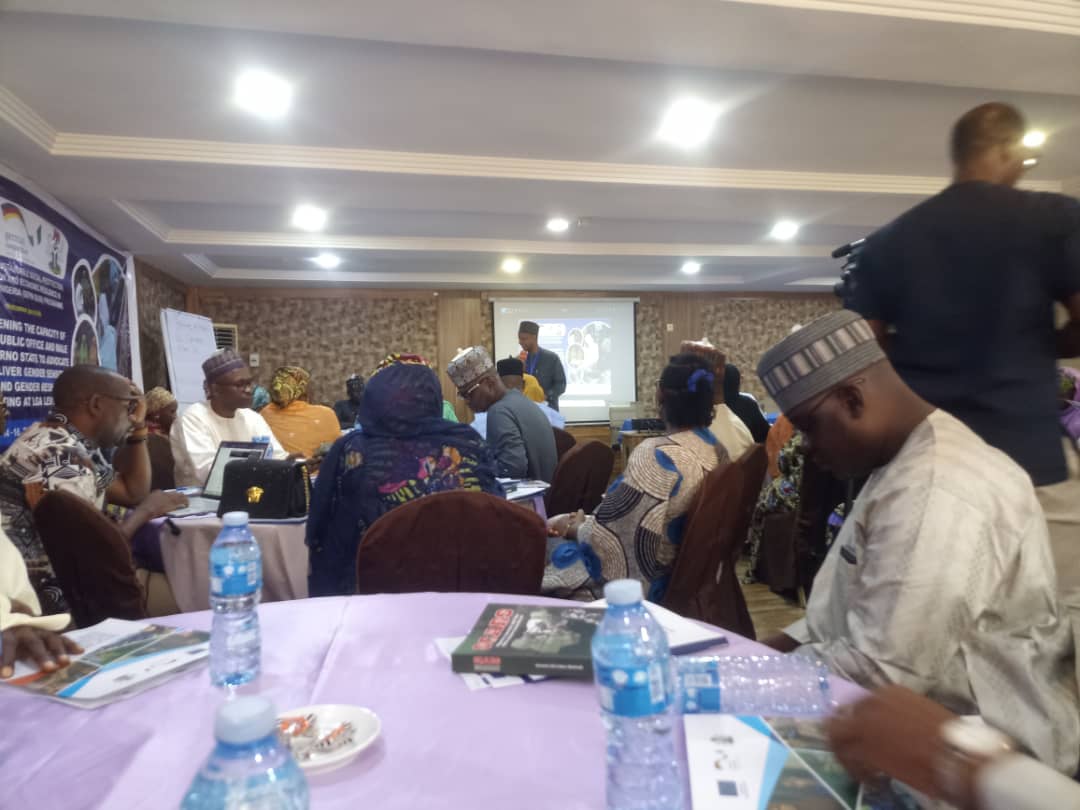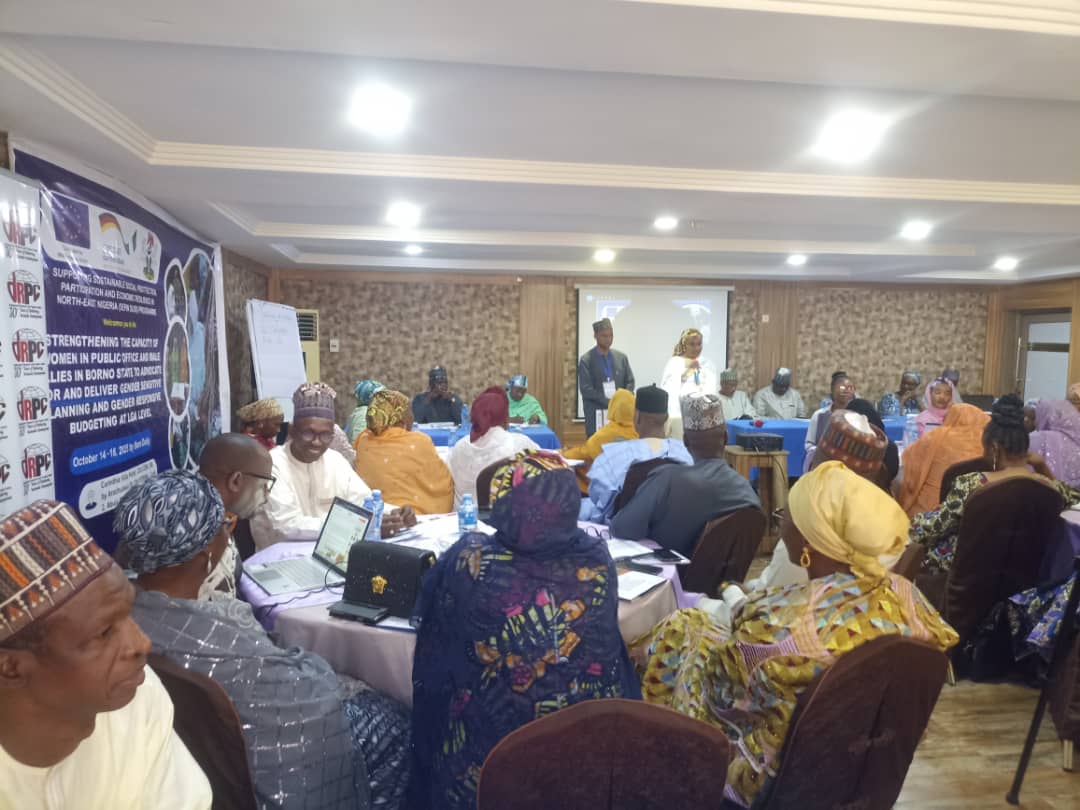'We must have women making decisions', Dr. Anas Kolo advocates

BY MUHAMMAD M. ALI, OCTOBER 17, 2025, 12:58 PM
Dr. Salma Anas Kolo has argued that having more women as decision-makers would improve development in Nigeria.
Dr. Kolo, currently special adviser on health to the office of President Bola Ahmed Tinubu, spoke on the sidelines of the ongoing gender advocacy workshop in Abuja, organised by German International Cooperation (GIZ) in collaboration with the European Union and the Development Research and Projects Centre (dRPC).
The workshop seeks to promote gender-responsive plans and budgets, as well as to increase women's participation in governance.
Dr. Kolo explained that having women as policymakers is important because they will amplify women's needs and make decisions for themselves and the family unit.
'We must have a balance; we must have equity; we must have women making decisions not only for themselves but for the family unit.
 'Nigerian women are very talented. In the private sector, where there is no bias, and even where there is bias, they are able to fight, you will find a lot of them occupying offices,' Dr. Kolo said, further asking women to support their fellows to develop their careers.
'Nigerian women are very talented. In the private sector, where there is no bias, and even where there is bias, they are able to fight, you will find a lot of them occupying offices,' Dr. Kolo said, further asking women to support their fellows to develop their careers.
She explained that unlike the womenfolk, men always mentor their fellow men to succeed them, and that was why the gender equality gap continues to widen.
She said this while calling on male politicians to adjust for women to also contribute, stressing that many women have tried to contest political offices but were 'denied the deserved chances during the election, even after winning the election.'
Available statistics reveal that out of the 109 senators in the National Assembly, only three (4) are women, while only 16 out of the 360 members of the House of Representatives are women. The picture clearly depicts a lopsided membership of the House in favor of the men. Women are still under-represented and obviously marginalized in democratization in legislative and executive arms of government. This trend flows from the national level, to state down to local levels where few women take the lead in local government chairman and councilors.
According to record, no woman has ever become a president or a vice president
The only first female governor in Nigeria, Dame Virgy Etiaba, only functioned as Anambra State’s governor for six months, following the impeachment of her boss, Gov. Peter Obi, on November 2, 2006. Ever since then, the closest a woman has come in governance is deputy governor as we have the first female deputy governor of Rivers state, south-south Nigeria, Her Excellency, Dr. Mrs. Ipalibo Banigo.
This was despite Nigeria's commitment international treaty for 35 percent affirmative 35 percent affirmative action for women – a policy that demands 35 percent involvement of women in all governance processes.
However, Dr. Kolo commended Governor Babagana Umara Zulum for supporting women in Borno.
'Despite the challenges women face, especially in Northern Nigeria, Borno has stood out,' she explained. 'The state is best in terms of providing skills for women to excel, and best in terms of having support from men. I will say the best men are in Borno.'
According to her, the first woman to contest for an election in Northern Nigeria was from Borno, as well as the first woman to be elected into the State House of Assembly, stressing that men in the state have been helping women.
'Our men have been good, but we want them to do more,' she added.
Dr. Kolo joined representatives of civil society organisations, journalists, government officials, and political activists to further widen the chances for women to gain political offices.
The three-day training was designed with facilitators to speak on diverse topics that will enhance gender-responsive budgeting and women's participation in politics.
Also speaking, Dr. Judith-Ann Walker, project coordinator of dRPC's program, said the workshop is aimed at strengthening the capacity of women in public office and male allies in Borno State to advocate for and deliver gender-sensitive planning and gender-responsive budgeting at the local government area level.
'The objectives are to strengthen skills in legislative engagement, gender-responsive budgeting, policy analysis, and strategic communication; to foster peer learning and mentorship across state lines; to enable participants to develop and implement personalised and group advocacy plans; and to facilitate a multi-stakeholder roundtable to encourage accountability and reinforce knowledge,' Walker said.
Other engagements at the workshop include paper presentations on the legal and policy obligations of federal and state governments to make and implement gender-responsive plans, policies, and budgets that address the needs of women and girls as a vulnerable group.
About GIZ The Deutsche Gesellschaft für Internationale Zusammenarbeit (GIZ) GmbH is the German Agency for International Cooperation, a global service provider owned by the German Federal Government. Since 1974, GIZ has played a pivotal role in advancing development cooperation between Germany and Nigeria. Its mandate in Nigeria aligns with key bilateral priorities, focusing on sustainable economic growth, employment promotion, renewable energy, and peacebuilding—particularly in the conflict-affected Northeast. In North-East Nigeria, GIZ’s interventions, including the SEPIN SUSI programme, operate at the intersection of humanitarian assistance and long-term development. The initiative aims to strengthen local institutions for improved basic service delivery and foster self-reliance by enhancing the resilience of vulnerable groups—especially internally displaced persons (IDPs) and host communities. Through efforts to bolster social protection systems and promote inclusive economic participation, GIZ’s projects—often co-funded by the European Union and Germany’s Federal Ministry for Economic Cooperation and Development (BMZ)—seek to lay the groundwork for lasting peace, security, and sustainable development, with a strong commitment to gender equality and social inclusion.
Appeal for support
Conflict Reporting is dangerous and risky. Our reporters constantly face life-threatening challenges, sometimes surviving ambushes, kidnap attempts and attacks by the whiskers as they travel and go into communities to get authentic and firsthand information. But we dare it every day, nonetheless, in order to keep you informed of the true situation of the victims, the trends in the conflicts and ultimately help in peace building processes. But these come at huge cost to us. We are therefore appealing to you to help our cause by donating to us through any of the following means. You can also donate working tools, which are even more primary to our work. We thank you sincerely as you help our cause.
Alternatively, you can also email us on
info@yen.ng or message us
via +234 803 931 7767


